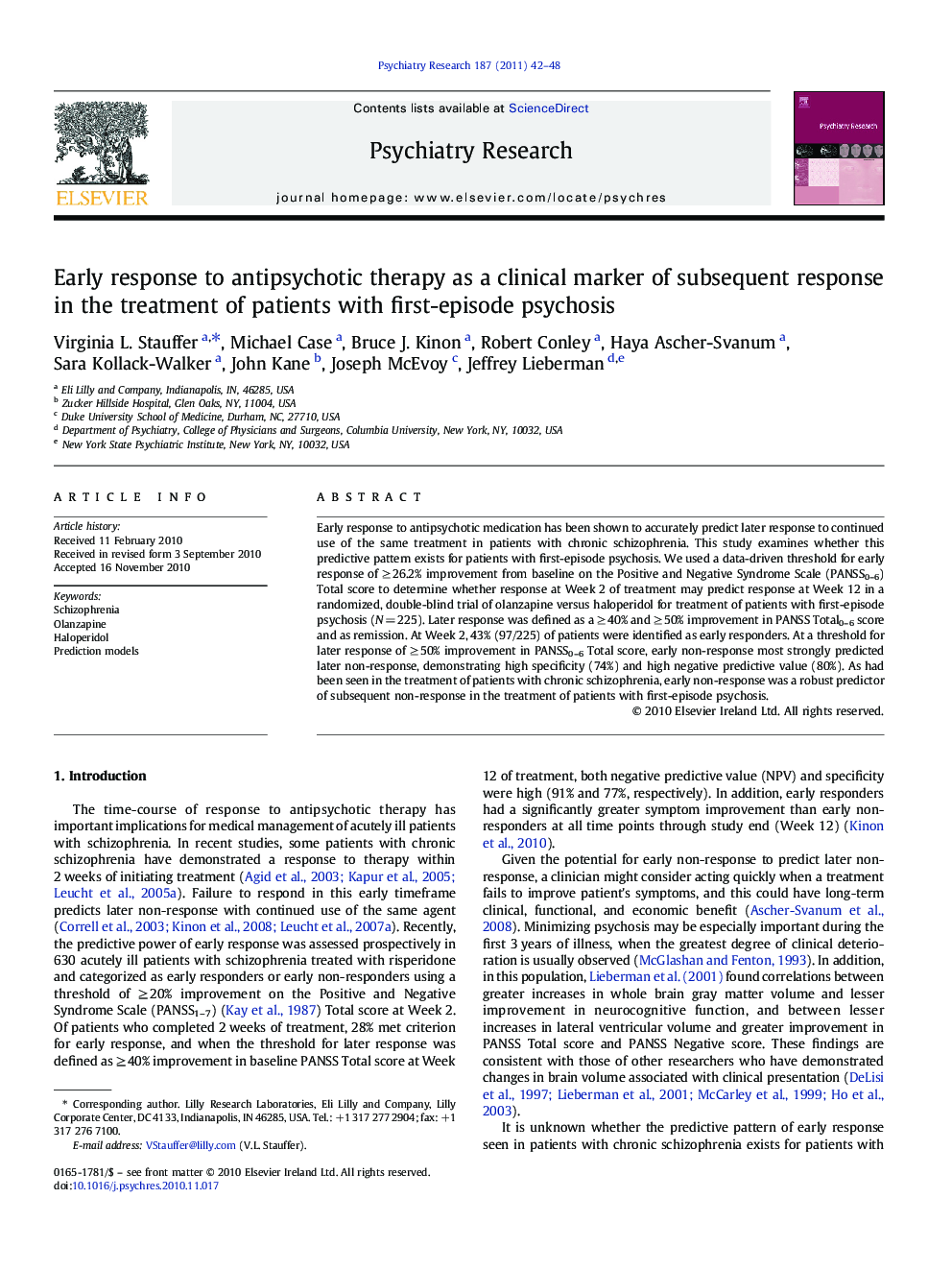| Article ID | Journal | Published Year | Pages | File Type |
|---|---|---|---|---|
| 6816311 | Psychiatry Research | 2011 | 7 Pages |
Abstract
Early response to antipsychotic medication has been shown to accurately predict later response to continued use of the same treatment in patients with chronic schizophrenia. This study examines whether this predictive pattern exists for patients with first-episode psychosis. We used a data-driven threshold for early response of â¥Â 26.2% improvement from baseline on the Positive and Negative Syndrome Scale (PANSS0-6) Total score to determine whether response at Week 2 of treatment may predict response at Week 12 in a randomized, double-blind trial of olanzapine versus haloperidol for treatment of patients with first-episode psychosis (N = 225). Later response was defined as a â¥Â 40% and â¥Â 50% improvement in PANSS Total0-6 score and as remission. At Week 2, 43% (97/225) of patients were identified as early responders. At a threshold for later response of â¥Â 50% improvement in PANSS0-6 Total score, early non-response most strongly predicted later non-response, demonstrating high specificity (74%) and high negative predictive value (80%). As had been seen in the treatment of patients with chronic schizophrenia, early non-response was a robust predictor of subsequent non-response in the treatment of patients with first-episode psychosis.
Related Topics
Life Sciences
Neuroscience
Biological Psychiatry
Authors
Virginia L. Stauffer, Michael Case, Bruce J. Kinon, Robert Conley, Haya Ascher-Svanum, Sara Kollack-Walker, John Kane, Joseph McEvoy, Jeffrey Lieberman,
